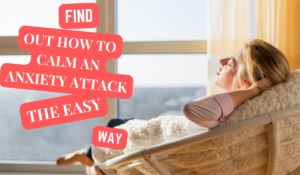INTRODUCTION
Feeling overwhelmed and out of balance? You’re not alone. Many women today face the dual challenges of managing mental health issues while striving for a balanced life.
Over the years, working as a professional counsellor, I have encountered numerous clients struggling with anxiety and depression. A common thread among these individuals is the lack of a balanced life; many feel stuck, overwhelmed, and unsure of how to move forward. They often describe feeling trapped in a cycle of stress and uncertainty, unable to find a way out. This article will explore five essential habits for achieving a balanced life and improving mental well-being.
- PRIORITISE SELF-CARE
Prioritising self-care is essential for maintaining mental health and achieving a balanced life. Self-care involves taking deliberate actions to care for your physical, emotional, and mental well-being. It serves as a foundation for reducing stress, preventing burnout, and improving overall life satisfaction.
Find ways to practice self-care throughout your day and block off time for the best activities you enjoy. This might involve having a long hot bath, reading your favourite book, meditating, or doing something you enjoy.
One of my clients, Sarah, was always anxious and working from a stressful job and family duties. She had almost no time to herself, which increased her stress. We developed this system of self-care that we could do together. Sarah started with a calming activity, like journaling, every evening for 30 minutes. She eventually expanded her self-care routines to include attending weekend Pilates classes and taking a monthly spa day. These modifications improved her symptoms, making them less severe with a more complete remission.
- PRACTICE MINDFULNESS AND MEDITATION
While learning to practice mindfulness and meditation is good for you in any capacity, it will also significantly minimise your likelihood of stress-related mental issues. Mindfulness is the practice of being aware and paying full attention to whatever you are doing now without judgment or criticism of yourself.
Begin by setting aside a few minutes each day for mindfulness or meditation. Find a quiet space where you won’t be disturbed, sit comfortably, and focus on your breath. Guided meditations, available through apps or online, can benefit beginners.
One of my clients, Emily, who is a Christian, struggled with chronic anxiety daily. She often felt overwhelmed by the many tasks she needed to accomplish and could never find time to read her Bible. However, after she started journaling a daily to-do list and setting aside time for Bible meditation, Emily experienced a remarkable transformation. She felt amazing and much more in control of her day. This simple practice significantly improved her mood and well-being.
- ESTABLISH A CONSISTENT SLEEP SCHEDULE
Getting plenty of rest is essential to maintaining a balanced life and mental health. Sleep is an integral part of mental health, and proper sleep cycles stock the basics that will contribute to your emotional regulation and cognitive function and implement any other form of functioning you care about. Establishing a sleep routine aligns your body clock, making it easier to fall asleep and wake up, lowering stress and improving mood.
Go to bed and getting up at the same time each day (including weekends). Establish a wind-down time/bedtime routine: get everything done BEFORE bedtime so all of your tasks are now out of sight and OUT OF MIND, thus cutting the loop early in the cycle. Make sure you have a good sleep environment: keep your room dark, calm, and quiet. Avoid anything stimulating, i.e., coffee or phone/TV.
Jenna, a client of mine, suffered for years from terrible insomnia; it was making her ill, and she found she had lost all motivation to do anything. I spoke with Jenna and adapted the above routine. It was difficult at first, but she kept at it. Thankfully, Jenna’s sleep quality dramatically improved. She woke up less groggy, and her anxiety went way down, along with her mood swings.
- MAINTAIN A BALANCED DIET
Eating healthy promotes both physical and mental wellness. A balanced, nutrient-dense diet means your body and brain are in prime condition, decreasing the risk of poor mental health, depression, or anxiety.
Try to eat more whole foods like fruits, vegetables, lean protein sources (like soy if you are vegetarian), grains, and healthy fats. Processed foods, sugar, and caffeine can adversely affect mood and energy levels. Keep your body hydrated throughout the day by drinking lots of water. This could mean meal planning and cooking so you always have good options or simply making some extra quinoa when it might otherwise be toast. Following your body’s hunger cues can also lead to a balanced diet without having to follow extreme restrictions in eating.
- ENGAGE IN REGULAR PHYSICAL ACTIVITY
It is essential to exercise regularly if we want our minds to be healthy and our lives balanced. Studies show that exercise releases endorphins, the natural mood elevators that reduce cortisol levels, one of our stress hormones. This takes place when you do physical activity regularly.
Pick an activity you love, such as walking, jogging, dancing, or golf! Strive for 30 minutes or more of mild activity on most days. Include cardio, strength, and flexibility to make a complete workout. Remember to rest if it feels off to avoid injuring yourself. Alternatively, teaming up with a friend or joining a group class can give you that extra push, and if nothing else, exercise is much more fun with company!
CONCLUSION
Achieving a balanced life is a transformative journey that can significantly improve your mental health and overall well-being. Incorporating essential habits can create a foundation for a healthier, more fulfilling life. Prioritising self-care is crucial, as making time for activities that nourish your mind, body, and soul while setting boundaries to protect your well-being can help you recharge and stay focused.
By embracing these habits, you can break free from the cycles of stress and uncertainty, gaining a sense of control and empowerment. Remember, achieving a balanced life is ongoing; small, consistent steps can lead to significant positive changes. Start today by implementing one or two of these habits and gradually build upon them. Your journey towards a balanced life is a commitment to yourself and will yield lasting rewards.
https://lindamcowan.com/how-do-i-let-go-of-anger-and-stop-holding-a-grudge
DISCLAIMER
The examples portrayed in this blog are fictitious and for illustrative purposes only. While they reflect typical client presentations, any resemblance to actual persons is purely coincidental. However, any personal illustrations are all true


